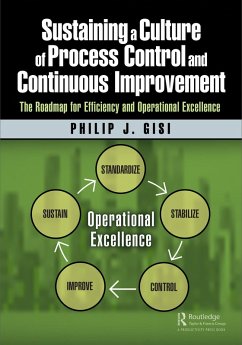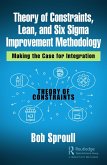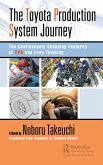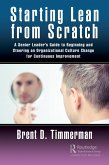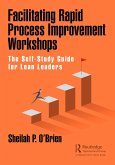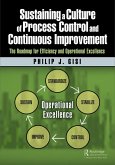This structured approach makes a clear connection between the need for a quality process to serve as the foundation for incremental efficiency improvements. The expectation of this work is to move beyond talking about the value contribution of tools and techniques for process control and continuous improvement by focus on the daily work routines necessary to maintain and sustain these activities as part of a process or 'shop floor' management mindset.
Part 1 starts the discussion of continuous process improvement with an understanding of variation and its impact on process. It continues by stressing the importance of standardizing a process on the road to process stability. Once process stability is reflected in a consistent and predictable process output, attention is turned to ensuring output capability consistently meets customer requirements. This series of activities sets the foundation for the sustainable pursuit of efficiency improvements.
Part 2 focuses on efficiency improvement by eliminating waste while improving process flow using proven tools, techniques and methods. Although there is a clear relationship between waste elimination and process flow, these activities are discussed separately to allow those more interested in waste elimination to work independently from those looking to optimize value stream flow.
Part 3, the final section, explores the principles, practices, systems and behaviors required to maintain process control while creating a mindset of continuous incremental improvement. This section also considers the role organizational structure, discipline and accountability play as essential components for long term operational success.
The key benefits of this work is to provide readers with a clear roadmap to establishing, achieving and maintaining process control as the foundation upon which to pursue efficiency improvements. It will raise awareness of the practices, systems and behaviors required to realize desired results and sustain a culture of process control and continuous improvement along the road to operational excellence.
Dieser Download kann aus rechtlichen Gründen nur mit Rechnungsadresse in A, B, BG, CY, CZ, D, DK, EW, E, FIN, F, GR, HR, H, IRL, I, LT, L, LR, M, NL, PL, P, R, S, SLO, SK ausgeliefert werden.

